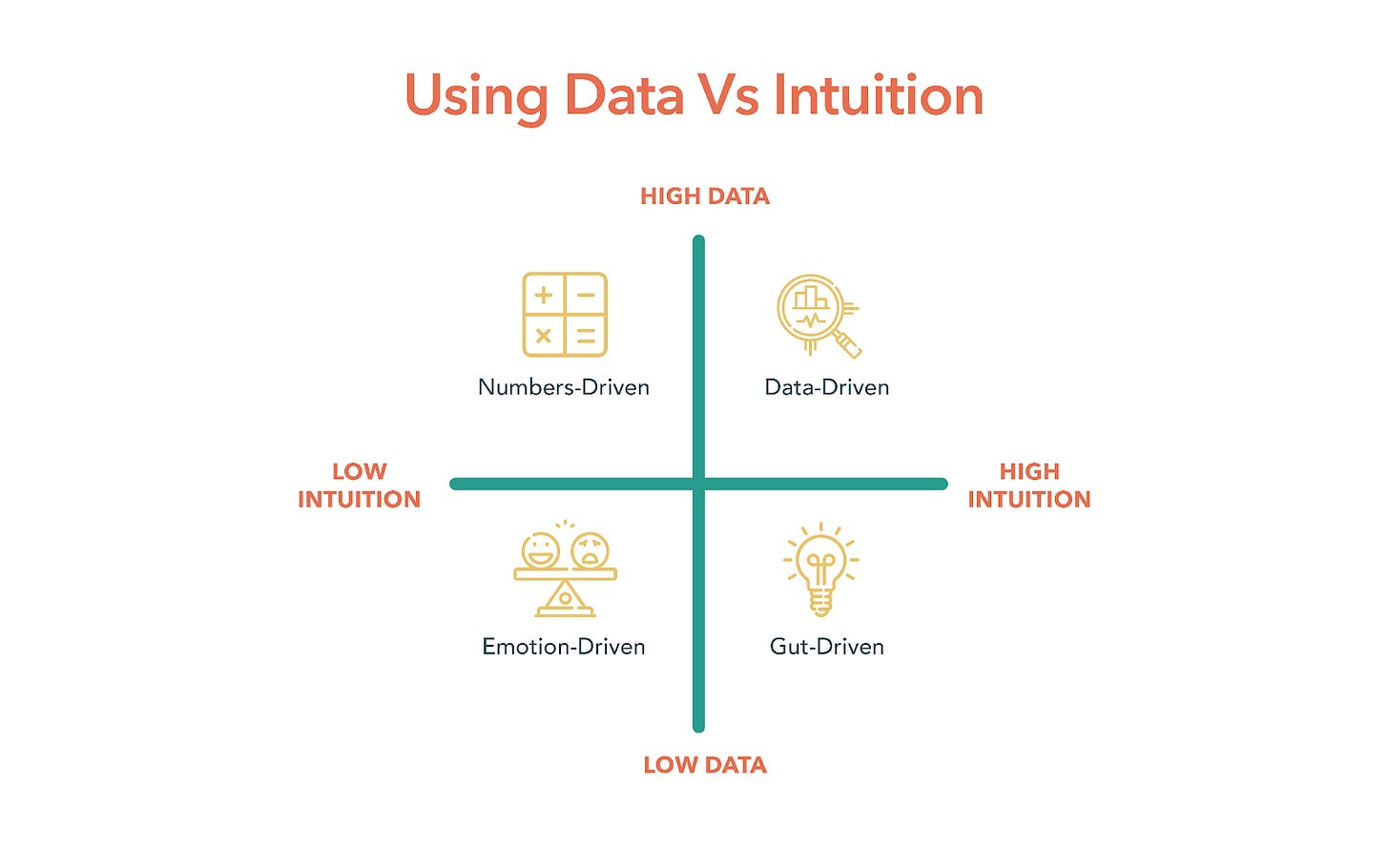Help others make better decisions
Three ideas to help your direct reports make better decisions for the organization and themselves.
If you’re enjoying this weekly newsletter, I would highly appreciate if you click the “Heart/Like” button at the bottom/top of the post.
Getting Inside Their Mind
Everyone has a process they follow to make decisions. One of the most valuable exercises you can do this week is helping your direct reports put their process on paper.
I sat down with a financial leader recently to talk about how to get alignment quicker when working with external stakeholders, government officials in his case. This is the process he wrote down.
Identity all stakeholders
Debrief stakeholders on what needs to be decided
Explore alternative solutions
Resolve objections
Establish accountabilities and next steps
Move to implementation
Pretty simple, right?
The magic occurs when we put this process on paper. We can now find ways to improve it.
I asked the leader if there were one or two stakeholders that were more important than others. He said yes. I suggested that he could start by talking to these “VIP” stakeholders first, before expanding to a larger group. This small change reduced his workload as the opinion of these “VIPs” often swayed others.
I bet you could likely find two or three similar improvements in any decision-making process, either to speed up the process, reduce the workload or improve the quality of the decisions being made.
By getting inside the mind of your direct reports, you can help them make better decisions.
Question: Which of your direct reports could benefit from mapping out their decision-making process?
Learning to Let Go
Many executives know how to delegate well. By the time you reach high leadership positions, delegation goes from a nice-to-have to a must, otherwise you would drown in the sheer volume of obligations.
Helping your direct reports learn how to delegate is the second idea this week.
People refuse to delegate decisions for three reasons:
They don’t know how to do it
They believe they can do it faster
They don’t trust others to achieve the same quality or results
Number one is solved by trial and error. Help your direct reports experiment with delegating small decisions and slowly build up to larger ones. They will soon learn the prerequisites for delegation—information, support, realistic expectations–and the best way to do it.
Number two requires a belief change. It might be factually true but that doesn’t mean others could do a good enough job. Find a way to link delegation with their self-interest. For example, they may have aspirations to tackle a certain project that is always on the backburner. By freeing up their time, they could finally get to it.
Number three comes down to expectations. What is actually needed in a given decision? I worked once with a manager who had unrealistic expectations—that could only be met by her—for a specific task. All she had to do was lower her expectations and she could delegate more decisions.
Don’t allow your direct reports to hoard decisions. Delegation muscles need to be trained regularly.
Question: What decision could one of you direct reports delegate this week?
Data vs. Intuition?
In the 2x2 chart below, from my book Bulletproof Decisions, where would you place yourself?
This is a simple exercise you can run with your team. Do they have a preference for data over intuition, numbers over emotions or something else?
Understanding how your direct reports use data and intuition will help you structure your discussions more effectively. There’s no right answer here but they should know their biases.
I have come across individuals who reject any idea if there’s no data behind it or individuals who reject data in favor of their intuition. Learning how to adapt to these different approaches can make the decision-making process easier.
Question: How can you use the data versus intuition this week to better understand your direct reports?
This week was all about helping others. If you would like to help other readers and myself, hit the heart or like button below.
Talk next week,
Ruben


